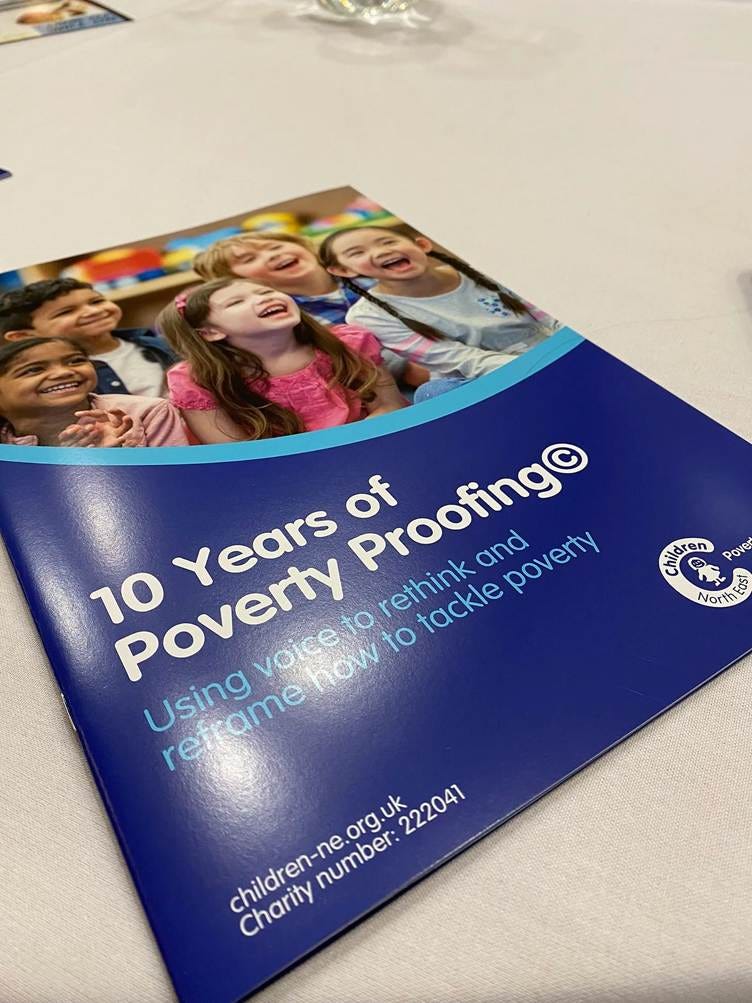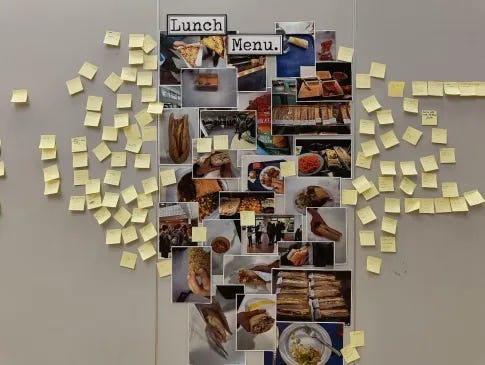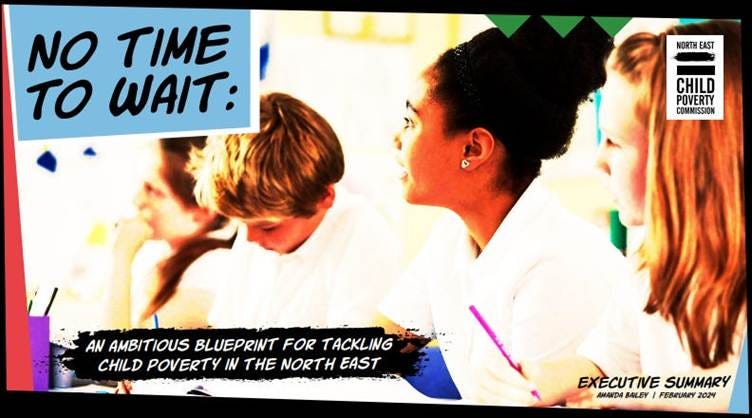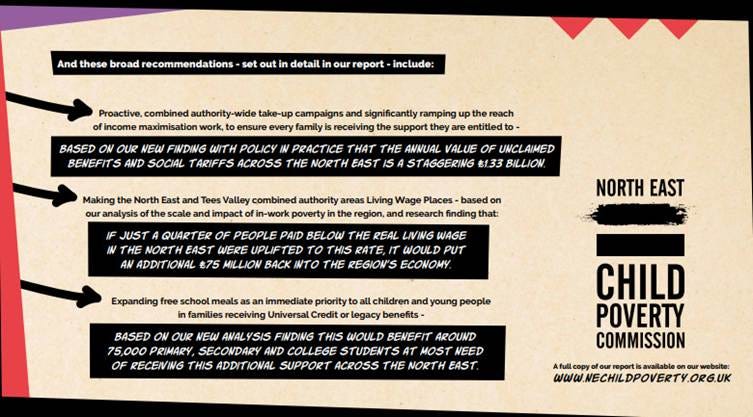
In these ‘what’s going right’ posts, I’ll highlight some of the initiatives that are making a meaningful difference in the campaign against child poverty and inequalities, particularly in the education sector.
While there are no silver bullets or instant solutions to addressing the profound and pervasive challenges of child poverty at scale, there are examples of effective practice that offer hope in collective work on these topics.
It is essential that we not only understand these efforts but also amplify them at both local and national levels. They show that progress is possible.
More than a meal
Free School Meals (FSM) play a vital role in supporting low-income families, ensuring children and young people have access to meals and helping to alleviate some of the impact of hardship and poverty.
In areas like the North East of England, where inequality and child poverty are widespread, expanding FSM access by ensuring eligible pupils are enrolled is not only a moral imperative but an actionable move to improve educational outcomes and community well-being.
Furthermore, it offers immediate and practical support to families that need it. Children continue to be the hardest hit when it comes to poverty and hardship. If their basic needs such as hunger aren’t met, education won’t get us far. No matter how good it is.
(Source: UK Poverty 2025: Joseph Rowntree Foundation)
Currently, the FSM system wholly relies on families knowing that they are entitled to, and then applying for support, despite government departments already holding the necessary data to identify eligibility. This has led to significant under-registration, with Feeding Britain estimating that over 200,000 pupils across England are not registered for their FSM entitlement. For councils, this means less pupil premium funding for schools and fewer resources to support children and young people who need it.
I’m acutely aware of the shortcomings of only viewing or tackling child poverty through the proxies of pupil premium or free school meals. Research shows that there are multitudes of households in poverty that do not qualify for FSM because of the stringent eligibility criteria. Worth noting that these have not changed since 2018. Society has seen a fair few complex issues since then which have further compounded hardship.
However, a process known as ‘auto-enrolment’ offers an actionable solution for broadening the reach of FSM, by leveraging existing data to automatically register eligible pupils unless their families opt out. This proactive approach is already showing promise in the North East, where councils have piloted auto-enrolment schemes with transformative results.
Food for thought from the North East
As of 2023/24, nearly one in three school-aged pupils in the region (31.2%) are eligible and registered for FSM, the highest proportion in England. This reflects the widespread financial hardship experienced by families across the region.
Yet, despite this high FSM rate, there are still a significant number of eligible pupils in the region who are not registered for this entitlement.
Building on pioneering work of Sheffield City Council, several councils in the North East of England are supporting efforts to tackle under-registration for FSM, by using their own locally-held data to proactively identify and then automatically register students for this support, unless families ‘object’ or ‘opt out’.
Councils in Northumberland, County Durham, Middlesbrough, and Redcar and Cleveland have trialled auto-enrolment schemes in collaboration with schools and partners.
To date, these pilots have:
Registered over 4,000 additional eligible pupils for FSM.
Secured more than £5 million in additional annual pupil premium funding for local schools.
Demonstrated overwhelming support for this proactive approach, with just 26 families opting out across all four areas.
You can read more about the impact of these early pilots here.
Other North East councils, including Stockton, Newcastle and Darlington, are in the process of implementing similar schemes, with South Tyneside Council’s recently published child poverty strategy committing to do the same. And this work builds on the longstanding efforts of other North East local authorities, namely Gateshead and North Tyneside, to maximise FSM registration rates as part of their proactive, ‘business as usual’ approach to supporting families.
Why auto-enrolment automatically makes sense
Many families do not apply for FSM due to perceived stigma, lack of awareness, or complex application processes amongst other factors.
Auto-enrolment helps to tackle some of these barriers, ensuring eligible children and young people receive the support they need.
Of course, this still needs to be implemented carefully at a school level to help ensure that children and young people don’t face additional layers of stigma or barriers. This is why the work of organisations such as Children North East is vital in supporting educators and leaders in schools with this. You can read more about their approach in our book Tackling Poverty and Disadvantage in Schools.
Schools receive vital pupil premium funding based on the number of FSM-registered pupils. This is currently the only way in which this funding is released to schools. By increasing registration, auto-enrolment directly boosts resources for schools, enabling them to provide better support for all pupils.
Needless to say, it removes some of the administrative work that school pastoral staff and leaders might be doing to help increase take-up of FSM too. This is invaluable at a time when school budgets are strained and workload is an obvious barrier. Imagine how else this time and energy could be better spent further supporting families in need.
It's also important to highlight that FSM eligibility acts as a gateway to additional support, such as the Holiday Activities and Food (HAF) programme, school uniform grants, and enrichment activities.
Auto-enrolment ensures families can access these benefits without additional hurdles. Readers can understand more about this through the excellent work of Prof Greta Defeyter OBE and the work that she and others are doing on this agenda.
Source: A Day in the Life of a Secondary School Pupil in Relation to School Food (2024) (schoolfoodmatters.org)
No time to wait for auto-enrolment
Whilst impactful, implementing auto-enrolment schemes at a local level has required significant time, capacity and valuable resources to be dedicated to this proactive work by councils and schools. This might be viewed as unnecessary when Government holds the information required to undertake this nationally.
There are widespread calls, including from the North East Child Poverty Commission (NECPC) and Schools North East, for a national system of auto-enrolment to be adopted for FSM, as part of the Government’s commitment to a cross-Government approach to tackling child poverty. Last week, a Private Member’s Bill on FSM auto-enrolment was debated in Parliament, clearly setting out the case for a national approach.
A national opt-out system, harnessing the wealth of data already held by government and local authorities, would help to ensure that every eligible child is seamlessly registered for free school meals.
The NECPC has laid out a compelling and actionable vision for tackling poverty in its report, No Time to Wait.
This blueprint stands as a testament to the impactful potential of collective agency, offering a roadmap for understanding and addressing child poverty on a regional scale.
I encourage you to explore the blueprint in full and share it widely across your networks. While the report is deeply rooted in the unique context of the North East, its insights and approaches carry a universal relevance, providing practical and replicable strategies that could provoke meaningful change for families across the country.
Moving beyond auto-enrolment by expanding FSM eligibility to all families receiving Universal Credit would help to further ensure that no child in poverty is left behind.
There absolutely is no time to wait.
Appetite for more
The North East’s leadership in piloting FSM auto-enrolment shows how proactive, data-driven approaches can make a tangible difference in tackling child poverty.
It would be even greater to see all authorities in the North East adopt this.
By securing additional funding for schools and ensuring that eligible pupils receive the support they need, these schemes are helping to build capacity for change in systems and across North East communities.
Scaling this approach nationally would not only address under-registration but also reinforce the Government’s commitment to reducing child poverty and promoting educational equality.
Again, there are no quick fixes or spontaneous solutions. However, there is an urgency to move from pilots to policy, ensuring that no child misses out on the essential support provided by free school meals.
To champion progress on this agenda, there are a number of ways in which you can be involved:
Subscribe to the NECPC newsletter to receive the latest bulletins, news and updates. This includes awareness of campaigns and ways you can support.
Join calls for auto-enrolment across your region/community by writing to your MP
Share this Substack with your networks and those with influence on these topics
Further links







